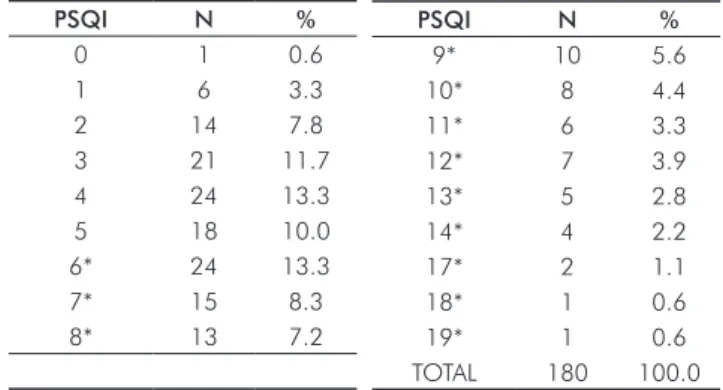Stress levels and quality of sleep in subjects with temporomandibular joint dysfunction
Texto
Imagem

Documentos relacionados
Sleep quality was evaluated using the Pittsburgh Sleep Quality Index (PSQI) (14). This scale has seven components, each one dealing with a major aspect of sleep: 1) subjective
Fatigue was assessed by the Fatigue Severity Scale (FSS >27), quality of sleep by the Pittsburgh Sleep Quality Index (PSQI >6), excessive daytime sleepiness by the
On both occasions, the following variables were assessed: sleep quality using the Pittsburg Sleep Quality Index (PSQI); quality of life perception using the Short-Form Health
Methods In patients consecutively submitted to bariatric sur- gery, baseline and postoperative sleep quality were evaluated by the Pittsburgh Sleep Quality Index (PSQI), excessive
Pregnant women were evaluated at the first, second and third trimester for subjective sleep patterns [duration and quality determined by Pittsburgh Sleep Quality Index
The patients were evaluated us- ing Sleep Questionnaire, Uniied Parkinson Scale, Hoehn & Yahr Scale, Pittsburgh Sleep Quality Index (PSQI), Epworth Sleepiness Scale (ESS),
The patients were evaluated us- ing Sleep Questionnaire, Uniied Parkinson Scale, Hoehn & Yahr Scale, Pittsburgh Sleep Quality Index (PSQI), Epworth Sleepiness Scale (ESS),
Along with the aim of the study to assess sleep quality by utiliz- ing depression, anxiety, and stress in IBS patients, majority of IBS patients suffered from poor sleep quality